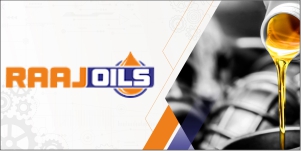You may not have heard of plastic pyrolysis, a technology by which plastic is broken down into smaller molecules of pyrolysis oil and gas to generate energy. That is not surprising given that it is yet to gain acceptance in India. But there may be good reason for the technology to be given a chance, present as it does an alternative to biogas plants and mass incinerators. More so, since in April, 2016 the government revised the Solid Waste Management rules, after a long gap of 16 years.
Pyrocrat Systems is among a handful of companies in the country eyeing movement on this front, having tasted some success abroad. The company’s turnover from setting up pyrolysis plants overseas may have been just R15 crore in the last 2-3 years, but the outlook is positive, with more projects in the pipeline from countries in Europe.But first things first. According to the Ministry of Environment and Forests (MoEF), India is the world’s third-largest garbage generating country. Worse, while just about 75% of municipal waste is collected, only 22% of this is processed and treated. The situation becomes alarming when one considers that by 2030, waste generation is expected to more than double from the present 62 million tonnes.
According to Central Pollution Control Board data (till 2013-14), the municipal authorities have so far set up just 533 compost and vermi-compost plants, 56 bio-methanation plants, 22 refuse-derived-fuel (RDF) plants and 13 waste-to-energy plants!To tackle this mounting problem, the government has made it mandatory for waste processing facilities to be set up by all local bodies. In case of towns with a population of a million or more, this has to be done within two years.
This has resulted in a business opportunity that companies are keen to tap. And while municipal bodies are inviting proposals from contractors, there isn’t a clear winner yet with respect to the technologies to recycle and convert waste to energy.Biogas plants were used earlier but they require waste to be segregated at source into dry and wet waste. Since this does not happen in India, biogas plants have been a failure as far as proper use of municipal waste is concerned. As for mass incinerators, industry insiders say there are concerns with respect to their emissions, though most waste management plants set up today are of this type. The third technology in the race is pyrolysis.
The good news is that the government recently recognised pyrolysis plants as part of corporate social responsibility (CSR) activity. Already, HPCL, IOCL and Engineers India have floated tenders to set up pyrolysis plants as part of their CSR spends. Also, the municipalities of Thane in Maharashtra and Chandigarh in Punjab recently called for discussions on setting up pyrolysis plants.
Suhas Dixit, Director, Pyrocrat, says he expects more domestic business once the rules for Municipal Solid Waste Management and Handling 2016, fully kick in from 2018. “Companies will have to comply. The clause regarding extended producer responsibility (EPR) means it is the responsibility of any producer of packaged products to ensure sound environment management. Consumer goods companies and waste paper recycling mills will have to be more responsible towards disposal of plastic waste,” he says.
BK Rao, deputy marketing manager at Parle Products, accepts the industry has not yet begun gearing up for the new regime. “However, we will be exploring ways and means to adhere to all guidelines. The department concerned within Parle will establish the protocol and way forward for the company as a responsible corporate citizen,” he says.












Add Comment